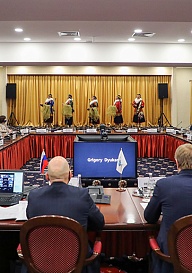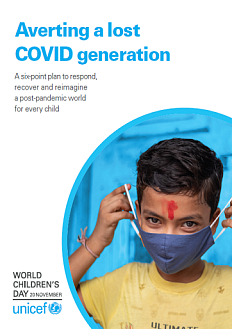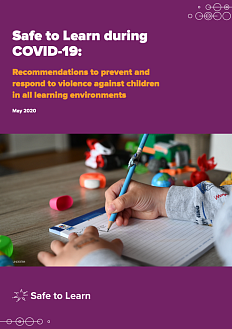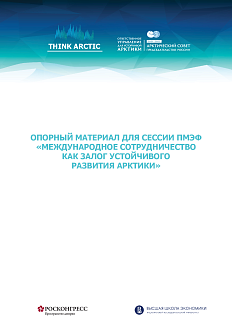KEY FINDINGS
The Children of the Arctic project aims to preserve and develop the culture of the indigenous peoples of the North, and its key objectives include improving the quality of the children’s education system and maintaining the linguistic environment in the Arctic zone.
«The future of the Arctic territories depends to a large extent on the conditions we create for the life, education, creativity, development of talents and abilities of our children. The education of children in the Arctic requires the special attention of the state. We must ensure equal opportunities for the development of children living in the Arctic regions (especially in rural areas) and leading a nomadic lifestyle together with their parents,» said Alexander Lutovinov, Chairman of the Nenets Autonomous District Assembly of Deputies.
«The Children of the Arctic project aims to jointly evaluate and research successful educational practices for indigenous children with experts from the Arctic Council member countries. The most important idea is to support indigenous education,» said Anna Otke, Vice-President of the Association of Indigenous Peoples of the North, Siberia and the Far East of the Russian Federation, member of the Federation Council Committee on International Cooperation.
Children of the Arctic project cannot be implemented without the participation of indigenous peoples of the North
«The potential and effectiveness of the project depend crucially on the regulatory role and participation of indigenous peoples and their institutions. Only they can fill it with new meanings that would ensure its practical significance and give it a new impetus,» said Sergei Timashkov, advisor to the head of the Federal Agency for Nationalities.
«We fully support the United Nations slogan ’Nothing for the Indigenous without the Indigenous’, so the new vector of the project is to focus on suggestions from representatives of non-governmental organizations,» Anna Polezhaeva, adviser to the head of the Federal Agency for Nationalities, said.
«In the new phase of the Children of the Arctic project, the Russian Federation has adopted a bottom-up approach, which implies that indigenous communities of the Arctic zone will define the project outcomes themselves and act as the main implementers of the project. This will enable indigenous organizations and their communities to work together, fostering a synergy of knowledge between experts and indigenous knowledge holders,» said Anna Degteva, Executive Secretary of the Indigenous Peoples Secretariat of the Arctic Council.
The Children of the Arctic project is evolving and should focus on practical action
«The Children of the Arctic project started in 2017. <...> The 2017–2019 phase can be described as a search for opportunities, a search for joint ideas in order to help in the accessibility of education for children of the North. The next stage began in 2019 and continues until now. These are more specific activities,» said Anna Otke, Vice-President of the Association of Indigenous Peoples of the North, Siberia and the Far East of the Russian Federation, member of the Federation Council Committee on International Cooperation.
«The project is being transformed, and our common task is to focus it on concrete actions that the concept envisages. <...> There is nothing restricting us to ensure that the right initiatives that non-governmental organizations and public figures have are included in the project concepts,» Anna Polezhaeva, adviser to the head of the Federal Agency for Nationalities, said.
PROBLEMS
The current education of indigenous children in boarding schools causes them to lose touch with their native language and culture
«You may have heard about the Atabasca experience of children visiting boarding schools in Canada and Alaska. This practice continues. And there are graduates of these schools who cannot even speak their native languages. Some of the Athabaskan languages are dead,» said Bill Erasmus, international chairman of the Arctic Athabaskan Council.
«Imagine: you are seven years old, you are taken away from your family and sent to a city or settlement, you are removed from your national natural context, from your family and the environment you have known since childhood. It is difficult for children who have to face this kind of stress. And it also leads to the fact that the transfer of traditional knowledge between generations can be interrupted. Therefore, the education of reindeer herders should not exist outside the nomadic way of life,» said Anders Oskal, Secretary-General of the Association of World Reindeer Herders and Executive Director of the International Centre for Reindeer Husbandry in the Kingdom of Norway.
«The importance of developing nomadic education precisely because it ensures the fundamental rights of indigenous children to maintain a connection with their traditional way of life is recognized both at the level of federal education and enlightenment bodies and by the expert community,» said Sergei Timashkov, adviser to the head of the Federal Agency for Nationalities.
Textbook shortages and their inadequacy to modern standards hamper education among indigenous peoples in the Arctic
«One of the main difficulties in language teaching is the lack of textbooks. Until 2016, our teachers used textbooks that were published during the Soviet era,» said Tatiana Tuliakhova, a methodologist at the Regional Institute for Education Development (YMAO).
«It is important that textbooks reflect the cultural identity of Arctic peoples, highlighting the relationship of their native languages to crafts, local climatic and geographical realities, nature, value systems and traditional knowledge. I would especially like to emphasize the connection between indigenous languages, crafts and trades: it has been seen that when certain crafts disappear, whole layers of vocabulary disappear from languages, along with the meanings they carry. Conversely, the loss of a language can lead to the loss of crafts,» said Alexey Tsykarev, member of the UN Permanent Forum on Indigenous Issues from the socio-cultural region of Eastern Europe, Russia, Central Asia and Transcaucasia.
SOLUTIONS
The development of nomadic education will make it possible to educate children without disconnecting them from their families and the traditional ways of their people
«Nomadic education is a very important and sensitive topic. We have 20 reindeer herding peoples, and we have semi-nomadic peoples. And it seems to me that the point of nomadic education is to provide equal educational opportunities to indigenous children leading this vulnerable way of life while maintaining a connection to their traditional environment, their traditional way of life,» said Sergei Timashkov, adviser to the Head of the Federal Agency for Nationalities.
«In 2017, at the request of the Department of Indigenous Minorities of the North of the Yamalo-Nenets Autonomous District, the Herzen Russian State Pedagogical University (RSPU) specifically developed an educational programme to train teachers of nomadic schools, taking into account regional specifics. The unique module of the education program helps develop competencies related to organizing the nomadic educational process and apply varying forms of its organization, taking into account specifics of nomadic education. <...> The Institute of Childhood at the Russian State Pedagogical University is also implementing a programme of additional professional education to train a nomadic educator,» said Sofia Unruh, acting deputy rector for regional work at the Herzen State Pedagogical University.
«Under the Nomadic School project, last year we developed a methodological document, which was sent to all the Arctic regions of Russia. It highlights the moments of organizing nomadic education. This year we created curricula and manuals on the basics of life safety in nomadic conditions for preschoolers and elementary school children, taking into account traditional knowledge. An additional professional programme for teacher professional development on the implementation of the educational process in nomadic conditions was developed and passed expertise» said Nadezhda Vasilyeva, acting director of the Federal Institute of Native Languages of the peoples of the Russian Federation.
Native language textbooks and children’s literature need to be published to preserve indigenous languages of the Arctic
«The Nenets Autonomous Okrug is characterized by a careful attitude towards national culture and the national language. We are working hard to preserve the Nenets language. In spring, textbooks were published for the national school, from the first to the fourth grades. Children have already started using them to study their native language,» said Yuri Bezdudny, Governor of the Nenets Autonomous Area.
«On the instructions of the Ministry of Education of the Russian Federation curricula and textbooks in the Even, Evenki, Teleut, Dolgan languages are being prepared, literary works in the Even, Udegei, and Saami languages have been translated. <...> textbooks in Nenets, Khanty, Selkup and Veps languages are being developed under the „Children of the Arctic“ project. Next year, the textbooks created in 2021 will be tested and published, and the development of new textbooks for other native languages will continue,» said Nadezhda Vasilyeva, Acting Director of the Federal Institute of Native Languages of the peoples of the Russian Federation, said.
«We suggest that at the federal level we consider funding the development of electronic forms of textbooks on the language and literature of indigenous peoples of the Arctic,» said Tatiana Tuliakhova, Methodologist at the Regional Institute for Education Development (YMAO).
For more analytical materials on the Arctic agenda, see the Roscongress Information and Analytical System roscongress.org/en/knowledge/arktika/materials/.
The material was prepared by the information partner of TASS.






